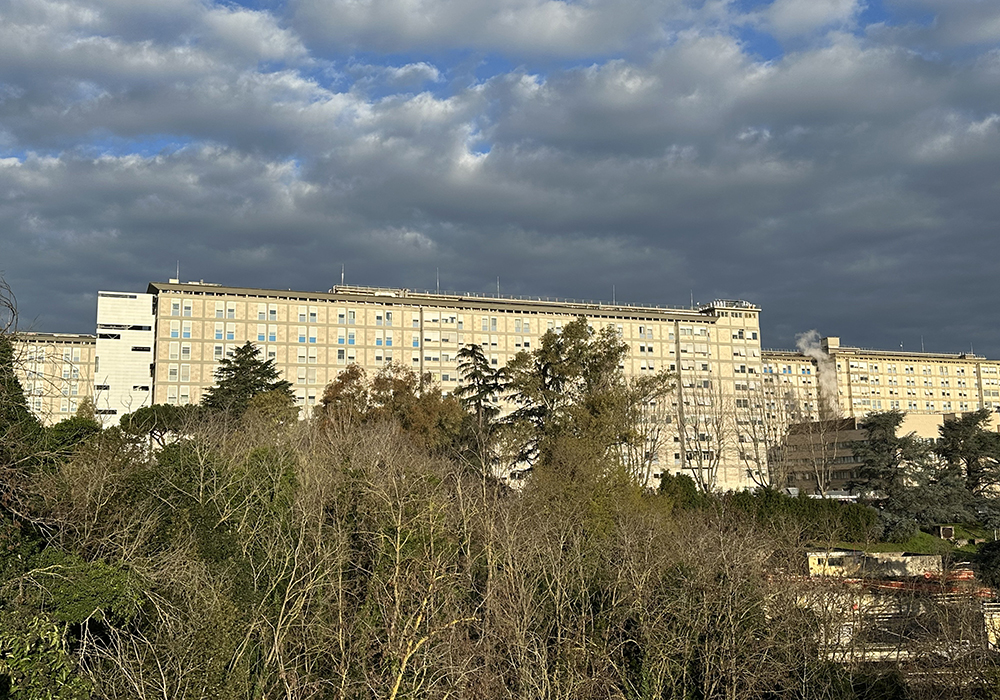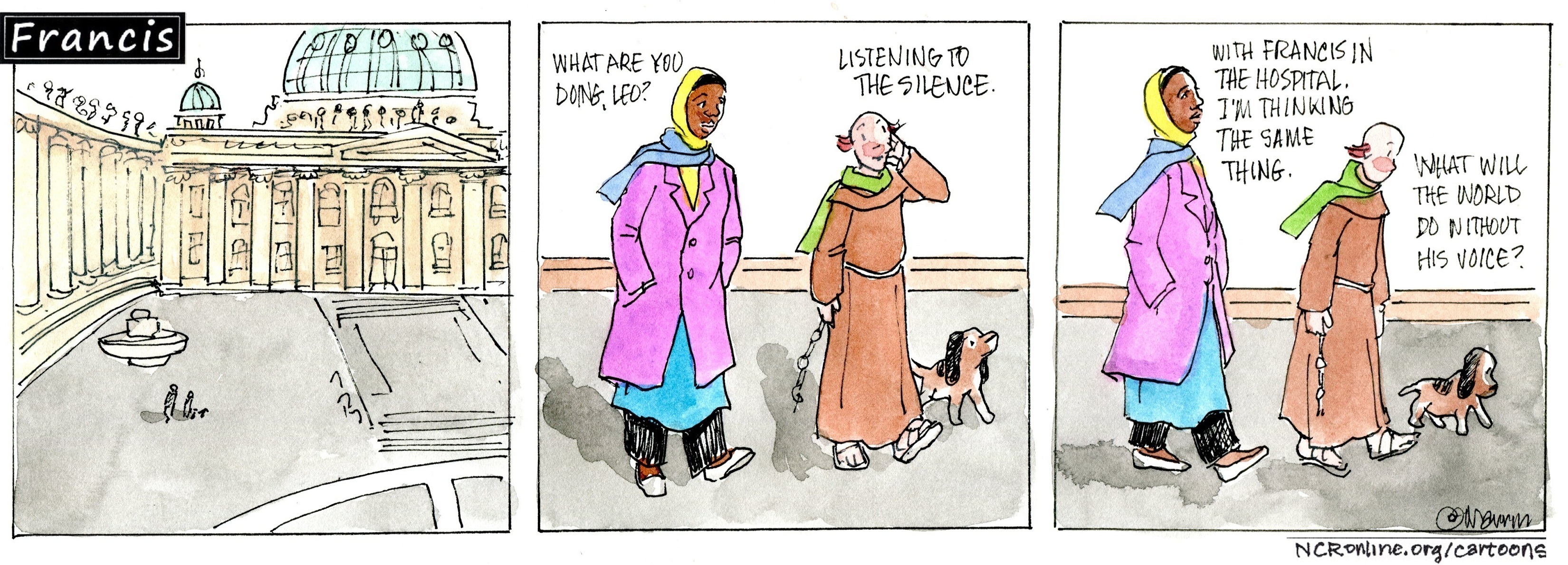
University of Scranton Students practice reflective listening deep within Badwater Basin in Death Valley National Park on A Desert Experience Retreat in December 2017. (Luis Melgar)
Advertisement
Click the image above to enlarge the cartoon by Pat Marrin.
The National Catholic Reporter's Rome Bureau is made possible in part by the generosity of Joan and Bob McGrath.
Pope Francis' treatment for a respiratory tract infection "will require adequate hospitalization" to address what the Vatican is now describing as a "complex clinical picture."
According to a Vatican bulletin released at 1 p.m. local time on Feb 17, ongoing test results have shown a "polymicrobial infection of the respiratory tract." The statement said that the pope's medical team has modified the treatment for the 88-year-old pontiff following the latest developments.
Francis, who has battled bronchitis since the start of the month, was first hospitalized on Feb. 14. In the previous weeks, Francis had been short of breath and struggled to speak during many of his public appearances.
While the Vatican has previously stated that the pope's condition has improved since he was first admitted, the latest update indicates the pontiff's situation remains serious. The pope's medical team has ordered complete rest for the octogenarian pontiff.
Advertisement
A Vatican news bulletin released at 7 p.m. on Feb. 17 said that the pope remained without fever and that his clinical condition is "stable." Earlier in the day, the pope received the Eucharist.

The south side of Rome's Gemelli hospital where Pope Francis is an inpatient is seen Feb. 17, 2025. (CNS/Robert Duncan)
On Sunday, Feb. 16, the pope did not recite his weekly noontime Sunday Angelus prayer, marking only the second time he has missed it during his 12-year pontificate. The last occasion was in 2023, following an operation on his intestine.
Outside of Rome's Gemelli hospital where Francis is being treated in the special 10th floor wing reserved for popes, a number of votive candles have been left by well-wishers offering prayers for the ailing pontiff.
This is now the second longest hospitalization Francis has undergone. The first, in 2021, required a 10-day stay following the removal of a portion of his colon.
This breaking news story has been updated.
Click the image above to enlarge the cartoon by Pat Marrin.
The National Catholic Reporter's Rome Bureau is made possible in part by the generosity of Joan and Bob McGrath.
Vital humanitarian activities that Jesuit Refugee Service leads in nine countries remain in jeopardy, the organization says, even after a judge's order to temporarily lift the Trump administration's freeze on foreign aid.
The United States office of JRS said it needs $1.25 million to continue its most critical programs — including providing medicine, food, shelter and services for children with disabilities — during the three-month pause on all U.S. foreign assistance imposed by President Donald Trump.
A federal district judge ordered late last week for the funding freeze to pause temporarily and gave the White House until Feb. 18 to comply. Despite that order, JRS has not seen its funding resume, an agency official told National Catholic Reporter.
The potential funding loss for crucial aid to the world's refugee population is the latest fallout for Catholic organizations from Trump's efforts to dramatically reduce international assistance. His administration has justified the foreign aid freeze as necessary to eliminate fraud, waste and spending out of line with its priorities. The U.S. spends roughly $40 billion on foreign assistance, or less than 1% of the total federal budget.
JRS programs receiving State Department funding have been at a standstill since Jan. 24, when Trump's 90-day pause on all U.S. foreign assistance went into effect. That includes the life-saving humanitarian work it undertakes with refugee communities around the globe, the organization said.
Secretary of State Marco Rubio has indicated such programs would be exempt from the funding pause. Jesuit Refugee Service did not receive instructions on applying for a waiver until Feb. 10. It paused that application after the temporary restraining order was issued.
"It's been a confusing period," said Kelly Ryan, president of JRS USA and regional director of JRS North America.
Advertisement








